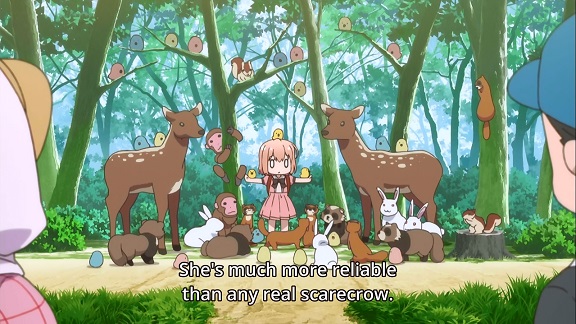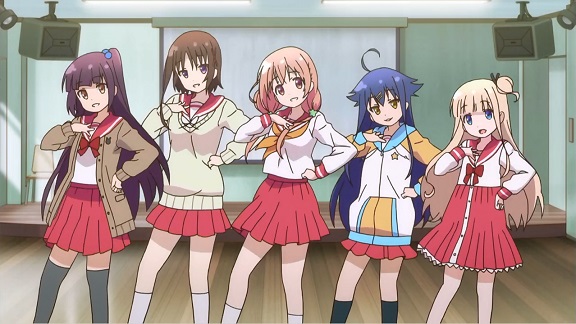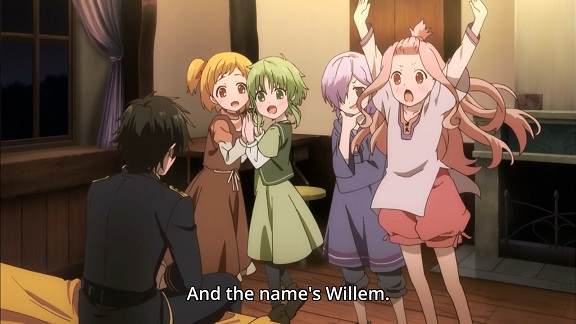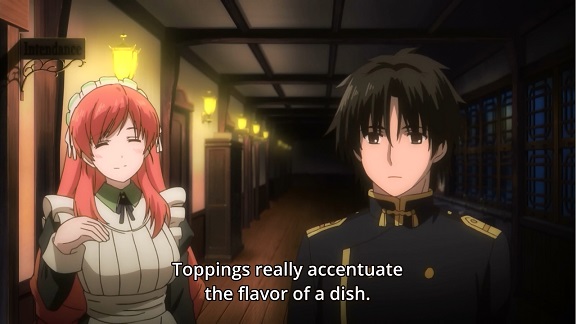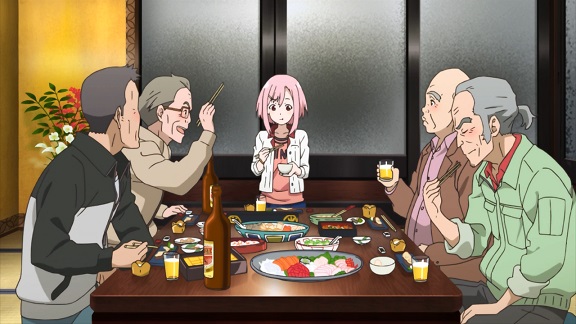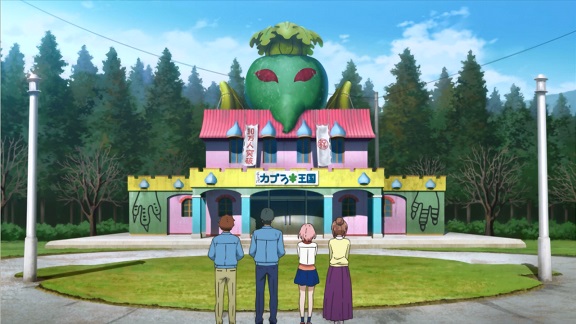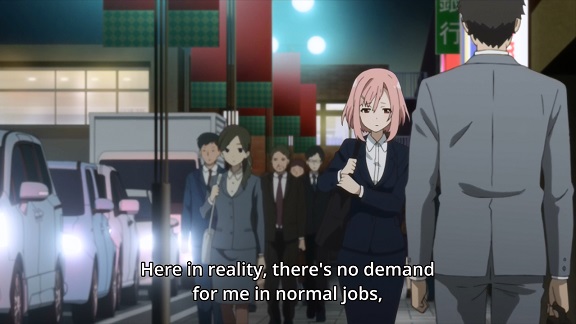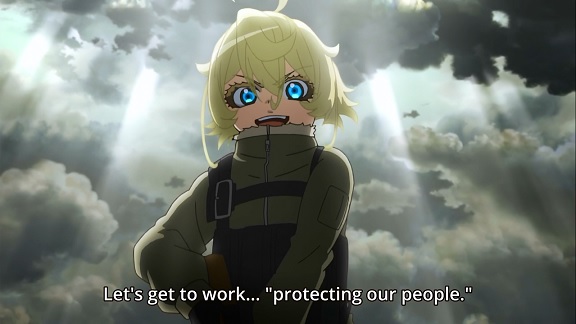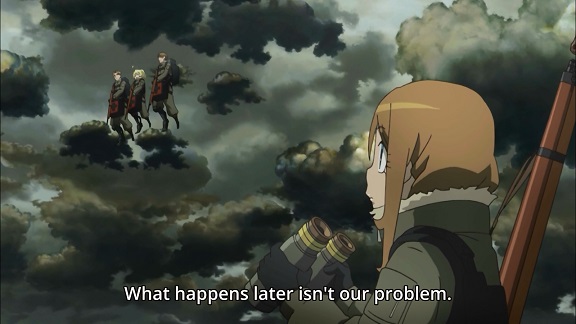Two class mates get traumatised by their families when they unexpectedly meet up at the same restaurant.
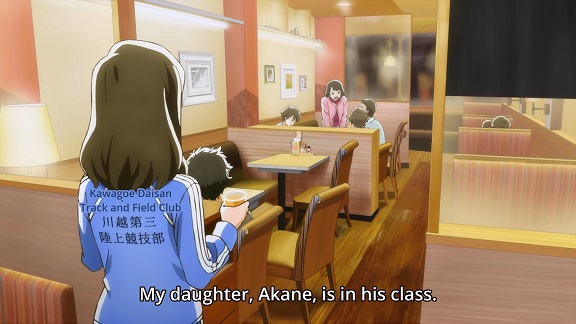
There is after all nothing as embarassing as your family prematurely meeting the boy/girl you may be developing a crush on. Nothing certain here yet, no contact. Just coy glances when he/she isn’t looking, looking away when he/she notices, an acute awareness of the other’s presence. Most romance stories in anime start when boy meets girl and one or both quickly falls in love. This sort of drawnout, uncertain longing is rare. I like it better than the usual anime shenanigans, the slowness and mundanity lending realism to the story.
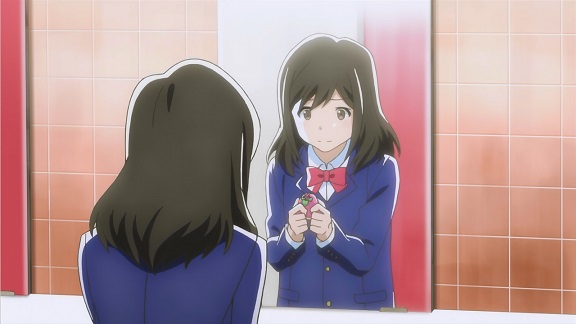
The girl, Mizuno Akane is sporty enough to be on the track and field team and suffers from anxiety enough she carries around a small stuffed potato thingie to calm herself. It’s an anxiousness not played up as cute, but something she just has to deal with in her day to day life. Not overdramatised, nor debilitating, but just something she has to deal with. As she had to do in episode two, when she lost her safety potato and promptly lost her baton during a relay race.
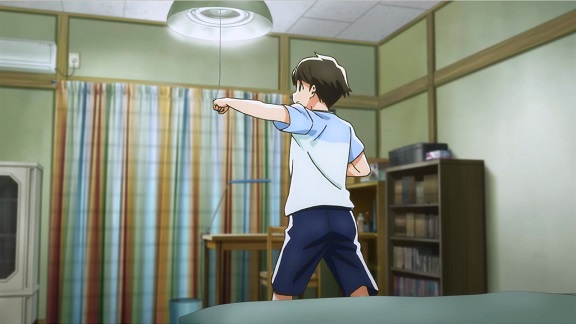
The boy, Azumi Kotarō, is a bit of a dork, in the literature club, aiming to be a writer and in love with Osamu Dazai‘s writing, who seems to be the sort of writer slightly dorky, intellectual teenage boys would fall in love with. His joy at getting a text from Mizuno to the point of shadow oboxing is exactly the sort of thing a teenage boy would do, having to get physical to deal with his feelings. He feels real, and the fact that he couldn’t “save” Mizuno in the second episode, even if he did find her potato thingie, helps. In short, I like this mundane, realistic, slow love story because it’s so different from any other anime romance.
